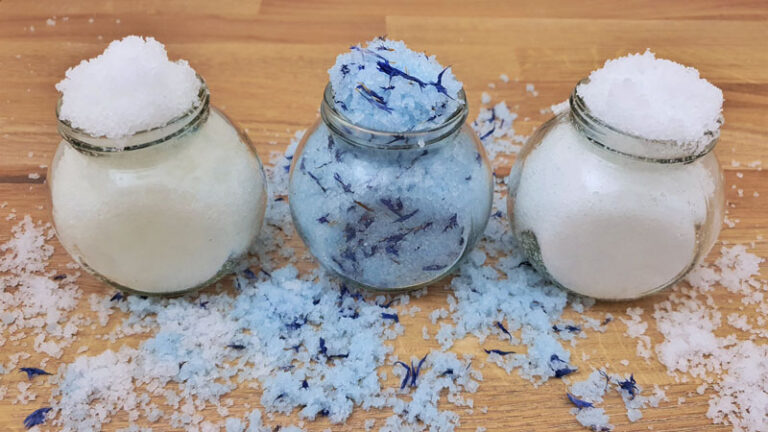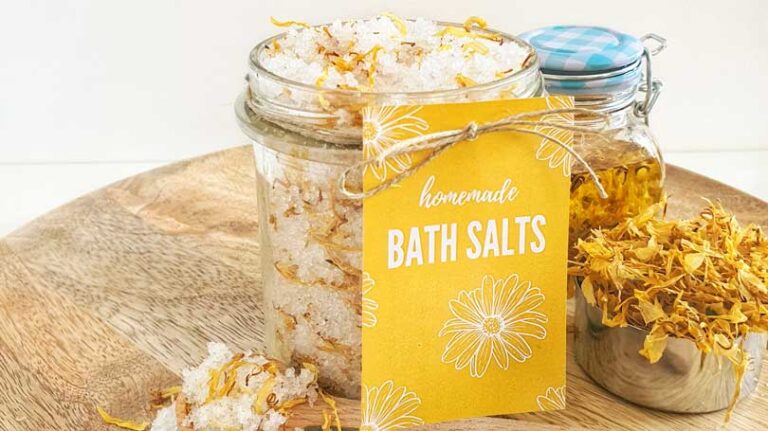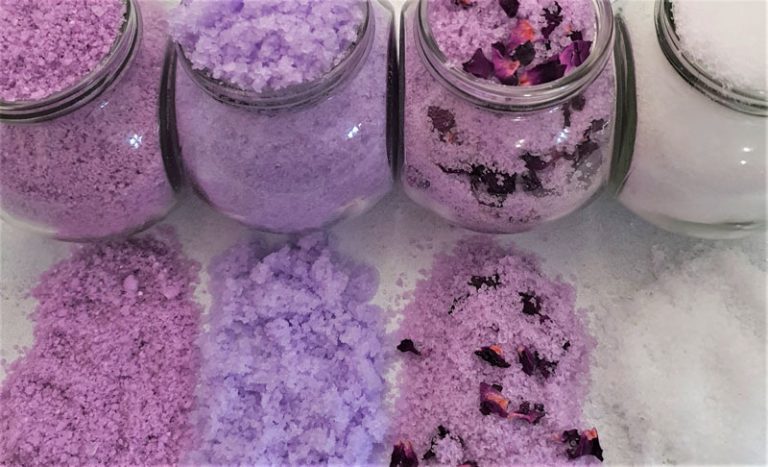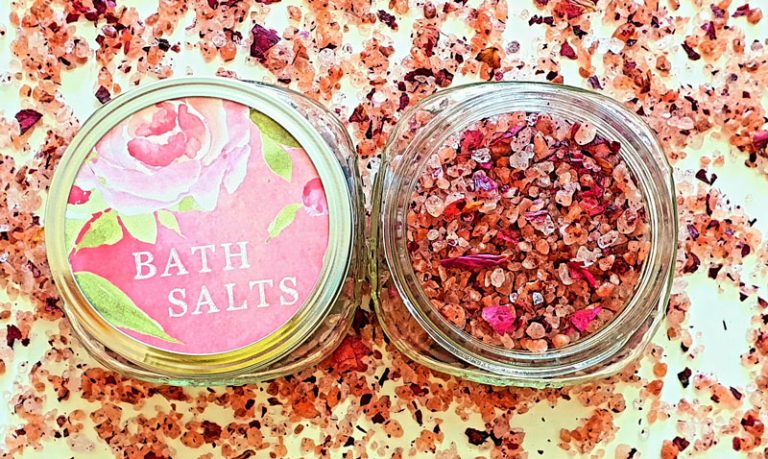How to Adjust Your Bath Salt Recipes for Hard or Soft Water
This post contains affiliate links. If you click and make a purchase, I may receive a commission. Thanks.
Are you a DIY enthusiast looking to perfect your homemade bath salts?
The kind of water in your tub can have a huge impact on your soaking experience. If you’re dealing with the residue from hard water or the overly smooth sensation of soft water, this post will show you how to maximize the benefits and enjoyment of your bath salts for any water situation. Forget about trial and error; I’ll show you exactly what works for each water type.
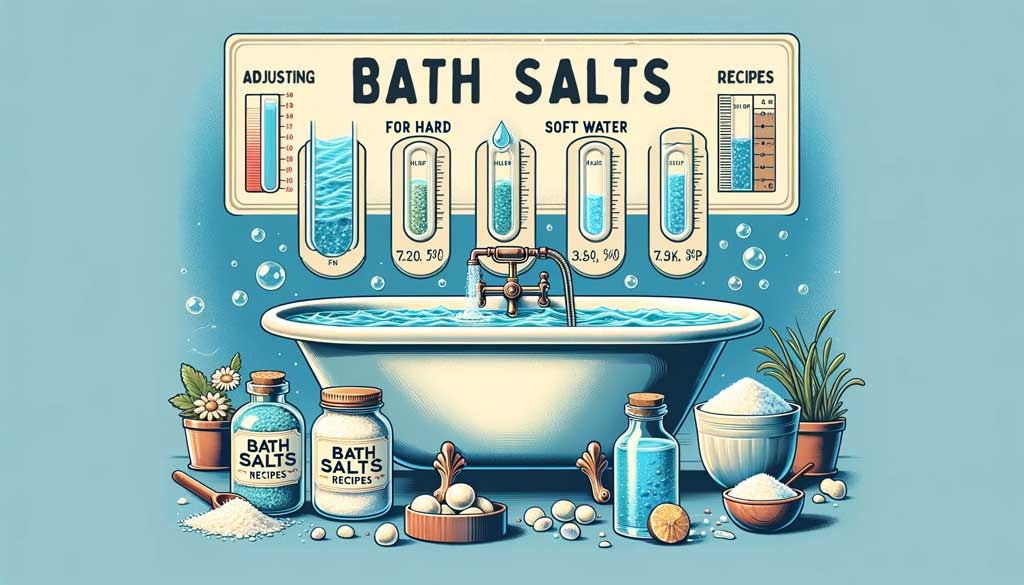
UNDERSTANDING WATER TYPES
Before we dive into the granular details of crafting your bath salts, let’s clarify what ‘hard’ and ‘soft’ water means. Hard water is high in minerals like calcium and magnesium, which can affect how bath salts dissolve and interact with your skin. Soft water, on the other hand, is treated to remove these minerals, resulting in a different bathing experience. Knowing the type of water flowing from your taps is crucial in customizing your bath salt recipes for an optimal soak.
IS YOUR WATER HARD OR SOFT?
If your water is hard, you might notice mineral deposits, often called limescale, on your faucets and showerheads, or your skin may feel dry after bathing. Soap scum on your bath or shower surface is another telltale sign, as hard water prevents soap from lathering easily. On the flip side, soft water is typically gentler on the skin. You’ll recognize it by the healthy lather your soap produces, the silky feeling of the water, and the way your skin and hair feel moisturized and smooth after a shower.
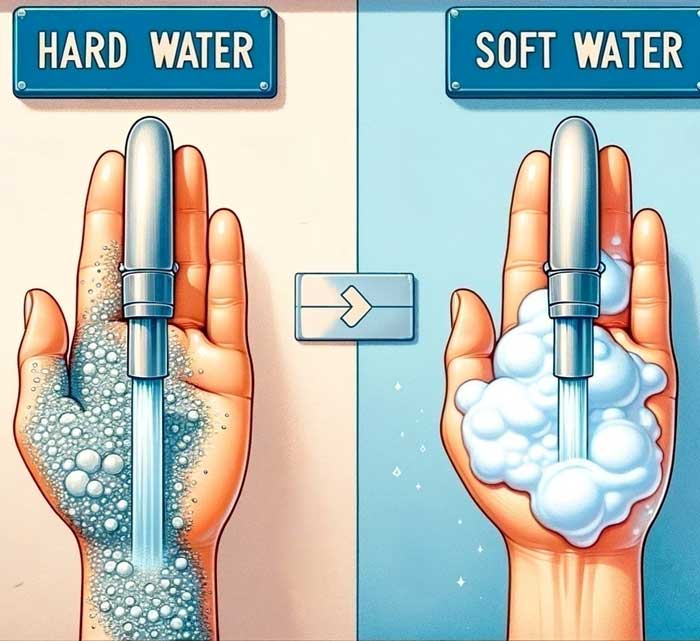
An accurate way to test your water hardness is by using a home test kit that measures the concentration of minerals like calcium and magnesium in your water. These kits are readily available online or at hardware stores. Understanding your water type is not just about science; it’s about stepping into a bath that feels just right and making the most of your DIY bath salts for a truly indulgent experience.
INGREDIENT SELECTION
Choosing the right ingredients is essential for creating bath salts that are compatible with your water type. For hard water, you might consider salts that can help to soften the water, such as magnesium-rich Epsom salts. For soft water, where salts dissolve easily, a blend of sea salts can add texture and trace minerals. Oils and botanicals also play a part; some can aid in counteracting the drying effects of hard water, while others might enhance the silky feel of soft water.
Additionally, if you are interested in bath slats ingredients that can be added to bath salts, check out my bath salts making guide.
BATH SALTS INGREDIENTS FOR HARD WATER
Hard water requires thoughtful recipe adjustments to ensure your bath salts dissolve without leaving residue. Here are ingredients to consider:
1. Epsom Salts: Abundant in magnesium, these salts can soften hard water and soothe the skin.
2. Citric Acid: Acts as a chelating agent, binding with minerals to enhance the solubility of bath salts. helps to avoid those dreaded bathtub rings.
3. Baking Soda: Softens water and provides a subtle effervescence for a spa-like experience.
4. Cornstarch: Helps to distribute essential oils evenly and adds silkiness to the water.
5. Carrier Oils (like Jojoba or Sweet Almond): They can mitigate the drying effects of the minerals in hard water.
6. Clay (such as Kaolin or Bentonite): Can help to gently detoxify the skin, counteracting the potential for hard water to clog pores.
By experimenting with these ingredients, you can create a bath salt mixture that not only dissolves effectively in hard water but also offers additional skin benefits.
BATH SALTS INGREDIENTS FOR HARD WATER
Soft water allows for greater solubility, which means your bath salts can dissolve with ease. However, the trick is to add texture and enhance the bath experience. Consider these ingredients:
1. Sea Salts (like Himalayan Pink or Dead Sea Salt): These add trace minerals and a luxurious grainy texture to your bath.
2. Baking Soda: In soft water, it can provide a mild fizz and help neutralize any excess acidity.
3. Milk Powder: For a creamy, indulgent bath, milk powder adds a silky softness to the water.
4. Essential Oils (such as Lavender or Eucalyptus): They disperse well in soft water, providing aromatherapy benefits.
5. Dried Flowers (like Rose Petals or Lavender Buds): These infuse the bath with natural fragrance and can add a touch of elegance.
6. Oatmeal: Ground finely, oatmeal can enhance the moisturizing properties of your bath, ideal for soft water’s silky texture.
Incorporating these ingredients into your bath salts for soft water can elevate your bathing ritual, turning it into a luxurious, spa-like experience that pampers your skin in all the right ways.
Pin for later:
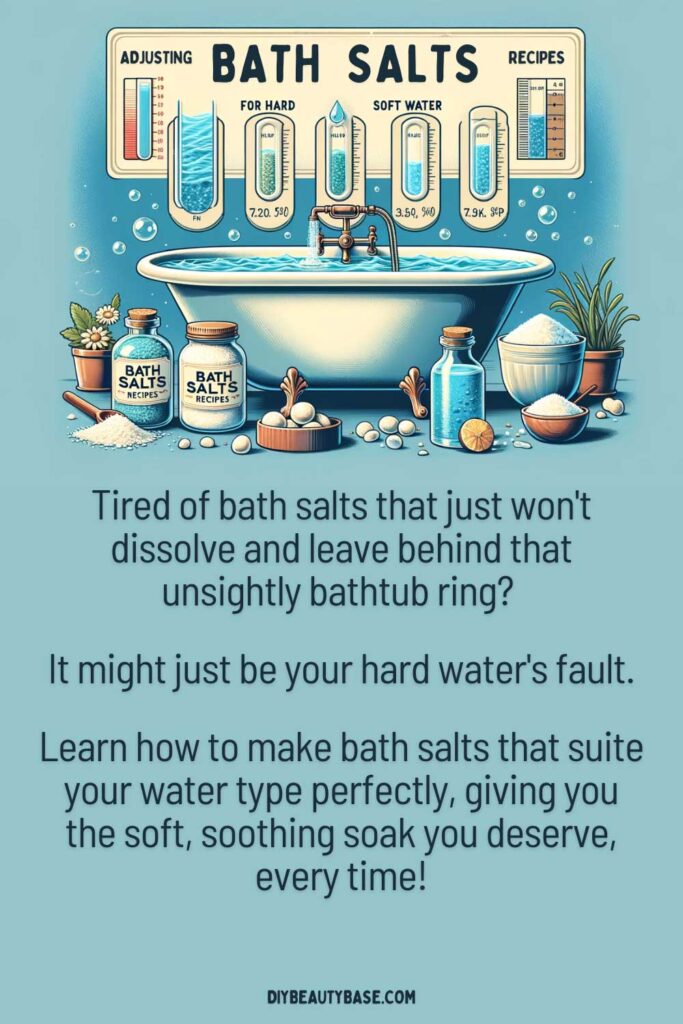
Crafting the perfect bath salt recipe for your water type is an art and a science. With these tips and tricks, you’re well on your way to elevating your bath time ritual.
Have you tried adjusting your bath salt recipes for hard or soft water? Share your experiences or any questions in the comments below — let’s continue the conversation and refine our DIY craft together.
Here are some simple homemade bath salts recipes that are easy to modify with additional ingredients to account for hard or soft water:

